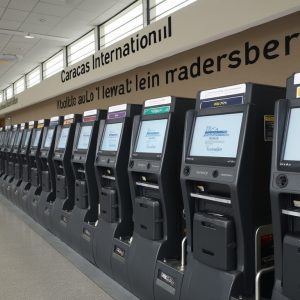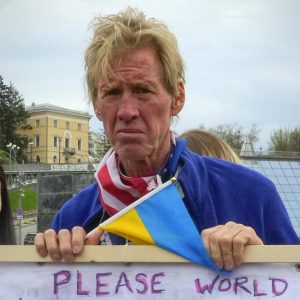Friday, 27 September, al-Jazeera Arabic reported that the call for demonstrations against President as-Sisi asked for the people to hit the streets after the Friday prayers.
That has already happened early Friday morning U.S. time.
In the meantime the security services blocked off all the streets and bridges leading to midaan at-tahreer (Cairo’s center plaza which was the focus of the January 2011 Arab Spring demonstrations that brought Mubarrak down). Other areas of the city were also locked down.
This seemed to stifle the demonstrations at first, but then it seemed like the numbers picked up as the day went on as people began to gather in side streets to demonstrate. There were also demonstrations in a number of other cities in Egypt.
Since the only major Arabic news entity reporting on these events is al-Jazeera, which has an anti-President as-Sisi bias, and al-Jazeera’s only video feed are images from participators’ cell phones, It is difficult to judge exactly how extensive these demonstrations are and how numerous the demonstrators. (Note, all western news entities mentioning the demonstrations in Egypt are relying on the accounts coming out of al-Jazeera.)
My gut feeling though, is that it is not as big a deal as were those last Friday. Meaning that the heavy hand, and the lock-down of Cairo, may have succeeded in dampening the protests to some extent–in spite of al-Jazeera’s wishes.
The arrest count from last week’s protest is now at 1900 and includes people from all walks of life. There is no word yet as to the numbers arrested today, although tear gas has been used in some areas. There is some video feed of people burning pictures of as-Sisi. Unlike last week, there seems to be a lot more children and African immigrants participating in these protests.
Talk show host ‘Amru Adeeb reported on his al-hakaya (the Story) show that Muslim Brotherhood members who fled to Turkey have called for the formation of a new group which would be able to get the people out onto the streets to protest the regime. This new group is needed, according to the MB, because the regime has penetrated the previous groups it has formed.
(Note: Since the Egyptian government has declared the MB to be a terrorist group, it has been banned in Egypt. Therefore, they tried to get around that by forming new groups such as al-hasm, and al-murabitoun. Note also that the above-mentioned talk show host ‘Amru Adeeb is reputed to be close to the regime in general, and close to Egyptian intelligence in particular.)
Issues related to the current demonstrations (other than those delineated in previous reporting) include:
–The government’s oppression.
–The never-ending war in the Sinai which the protestors claim the government is intentionally extending so they can use the excuse of “the War on Terror” to keep the country virtually under martial law.
–The “renaissance dam” in Ethiopia which Egyptians fear will cut off the flow of the Nile, Egypt’s only source of water. They blame as-Sisi for signing a protocol with Ethiopia allowing Ethiopia to go ahead with the dam’s construction.
–General corruption in the regime, but more specifically:
–The appointment of as-Sisi’s son, Mahmoud, as the head of Egyptian General Intelligence (EGI). The EGI includes all intelligence functions, foreign and domestic. In U.S. terms it would be like housing the FBI, CIA, DHS, and NSA all in the same agency headed by the same bureaucracy. President as-Sisi appointing his twenty-something son Mahmoud as head of the DGI would be like Donald Trump appointing Ivanka as head of the CIA, NSA, FBI, and DHS all at the same time. Imagine the uproar that would cause.
ANALYSIS: One of the major conundrums for U.S. policy makers with regards to the Middle East, is that in the Islamic Middle East it seems that the only choices for government are either a corrupt Monarchy (such as Saudi Arabia), a corrupt military dictatorship (such as Mubarak, Assad, Saddam, Qadhafi, etc.), or an equally corrupt Islamist regime such as the one Khomeini set up in Iran when the Shah was pulled down, or the MB regime in Egypt that took over when Mubarrak was pulled down.
The military dictatorships tend to become family mafia fiefdoms. We saw that in Saddam’s Iraq as he was grooming his two sons to take over. Syria is in the second generation of a family mafia rule, with both the father and the son appointing their brothers to head up Syria’s intelligence organization.
One of the final straws that broke the Mubarrak camel’s back was Mubarrak grooming one of his sons to take over after him. So, now we see as-Sisi making the same mistake by appointing his “still wet behind the ears” son to head the EGI.
President as-Sisi, on paper, has done a lot for his country. In the foreign policy arena he has developed good relations with virtually every country on the planet from the wealthy oil countries of the Gulf to the great powers of the north: Russia, Japan, China, U.S., and Europe (regardless of their antagonisms towards each other). He has good relations with both Pakistan and India, as well as both Koreas. Egypt, under as-Sisi, is at odds only with the Islamist regimes of Turkey, Iran, and Qatar.
President as-Sisi’s foreign policy successes have led to a massive uptick in foreign investments in Egypt allowing him to beef up the country’s infrastructure. This in turn has led to a roaring economy producing a Chinese-esque 5% annual GDP growth.
The carrot and stick approach as-Sisi has used to keep his people both happy and under control seemed to boost his actual popularity for awhile. However, I believe that the turning point came when he had the constitution changed Putin style allowing him to remain in office until the mid-2030s.
After the dethroning of the MB president Mursi in 2013 the new constitution that was voted in, and signed by as-Sisi after his assuming the office of president in 2014, called for the office of president to be up for election every four years, with a term limit of just two terms, as in the United States. President as-Sisi “won” re-election in 2018 (in an election in which all credible candidates were disqualified), meaning that based on the constitution he would still have to step down in 2022.
But, then (perhaps over-estimating his popularity with the folks) he had the constitution changed to make the presidential term six years, instead of four. Then, because the rules of the game were changed he had a judicial decision made that since he had never had the opportunity to run for a six-year term, he had to be granted that opportunity, i.e. to start all over under the new system with a blank slate.
Translation: When his current four-year term ends in 2022, he will now legally be able to run for one of the new six-year terms beginning in 2022, which would take him until 2028 at which time he could run for a second six-year term taking him to 2034 before he would have to retire—barring any additional changes to the constitution—and you can just imagine how “fair and legitimate” the 2022 and 2028 elections are going to be.
This move towards a Putin-esque “president for life” situation was so blatant that it embarrassed even his staunchest supporters, and no doubt poured fuel on the fire of his critics.
Thus, the appointment of his son to head the EGI may turn out to be the final straw to break the back of as-Sisi’s camel. His carrot and stick policy may have won this current round of Arab Spring 2.0, but my advice to U.S. policy makers is: don’t put all of your chickens in the pot in terms of as-Sisi’s long term survival.
///////
Barry Webb had a 25-year career as an Arabic translator/analyst for the NSA, and holds two MA degrees in related subject matter. He is currently a senior fellow with Americans for Intelligence Reform at: www.intelreform.org and is the author of “Confessions of an (ex) NSA spy: Why America and its Allies are Losing the War on Terror. His website is: www.barrywebbauthor.com



